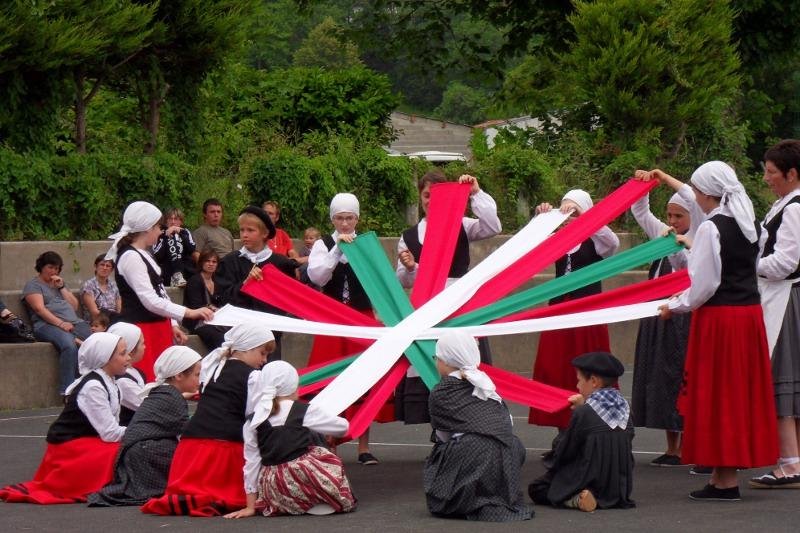The Basque language

The Basque language (or Euskara) is a genetically isolated language spoken in Spain and France at the western edge of the Pyrenees. It is related to no other known language family and that fact has put forward a number of hypotheses over the centuries to explain the origin of Basque.
Basque regions
Alava, Bizkaia, Gipuzkoa and Navarre are the areas where Basque is spoken on the Spanish side of the border. In the Northern Basque region on the French side of the border (Le Pays Basque) are the provinces of Labourd, Lower Navarre and Soule. Together, these seven regions or provinces are called Euskal Herria in Euskara. The latest figures show that out of a total population of around three million, some 900,000 people speak Basque. The dialectal differences in Euskara are very pronounced. There are five Basque dialects used in the Basque regions in France and Spain. In France, there are the Zuberoan and Navarrese-Lapurdian, while in Spain, the dialects include Upper Navarrese, Gipuzkoan and Bizkaian.
The origins of the Basque language
Among linguists, Basque is known for possessing some unique linguistic features and a mysterious origin. This language is surrounded by French and Spanish speakers but doesn’t share an origin with them. In fact, linguists believe that Basque is the oldest language in Europe. It is considered a “pre-Indo-European” language, meaning it developed in prehistoric times. In fact, the recent discovery of some archaeological remains near the city of Pamplona have placed the use and existence of the Basque language to the 1st century BC.
Throughout history, the Basque language has demonstrated an enormous capacity to absorb words and structures from other languages. If not, it would surely have disappeared centuries ago, as is the case with other languages spoken two thousand years ago in what is today Spain and France. Basque is such a unique and complex language that it has only been able to be compared with another language, Georgian, with which it shares some typological similarities, although both languages are still very different from each other.
A unique and isolated language
Basque is one of the ten most difficult languages to learn in the world, along with Hungarian, Korean or Polish, among others, especially for English-speaking people. The Basque language is agglutinative, meaning it likes to use suffixes, prefixes and infixes, so new words are frequently formed by adding a common tag onto the end or the beginning or in the middle of a simpler word. For example, the word lege means law in Basque, but the sentence “according to the law” wouldn’t be 4 distinct words, but instead would be legearen arabera.
Furthermore, as it is an isolated language, there are no proven relatives of Basque in the way that Spanish and Italian or English and German are related. This makes it very difficult to learn new words since they are not reminiscent of anything we knew before. For example, if we want to learn some of the words related to the kitchen (which is called sukaldea in Basque), we will find out that aizto is a knife; sardeska is a fork; koilara is a spoon; and labe is an oven. Not everything seems positively foreign; those who speak a Romance language will recognize baso for glass and plateru for plate, but those are only some exceptions.

As happened with the other official languages of Spain, Basque was also restricted and punished during the dictatorship of Francisco Franco, causing its use to be temporarily lost during this period. In the late 1960s the Basque Language Academy developed a standardized form of the language called the Euskara Batua. With this, the Basque language can now be understood easily by all speakers of the language in the formal setting and remains in use to this day.
While progress is being made in the teaching of Basque, its actual use is a slow process. Despite all the hurdles, the survival of the Basque language is guaranteed, although not throughout the entire Basque lands.